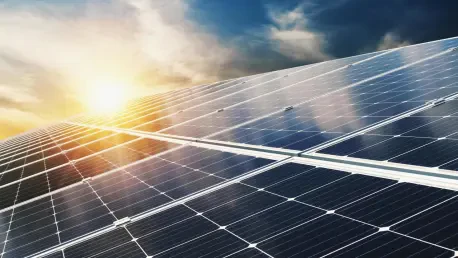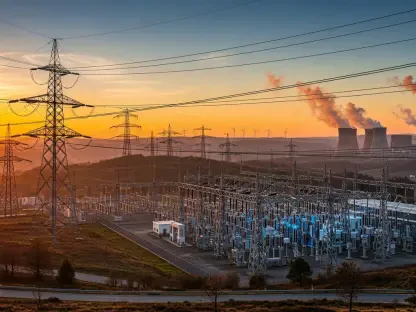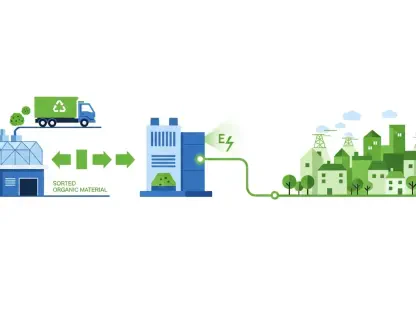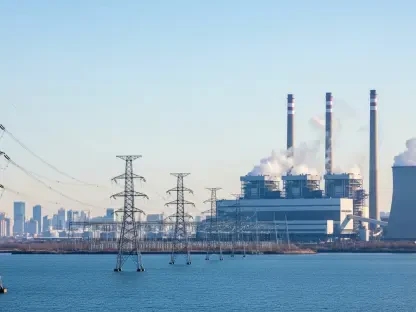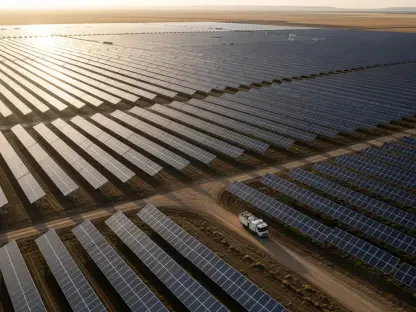As discussions on renewable energy solutions proliferate globally, recent events in Assam highlight critical challenges faced by indigenous communities in the pursuit of green technology. The burgeoning tension underscores fears of compromising tribal land rights as solar power projects, backed by major international players like the Asian Development Bank (ADB), encroach upon native territories. In Assam’s Karbi Anglong, civil society organizations have risen in protest, voicing grave concerns over potential land exploitation and the dismissal of indigenous communities’ consent. These developments echo a critical need for balancing sustainable progress with the legitimate claims of indigenous tribes.
Growing Concerns Over Land Allocation for Solar Initiatives
The heart of the matter lies in the alarming allocation of land for massive solar power and compressed biogas (CBG) projects in Assam’s Karbi Anglong district. The plans involve setting aside significant portions of prime agricultural and forest lands traditionally owned by tribal communities. Advocates fear the projects may induce considerable disruption, such as mass deforestation, farmland destruction, and the displacement of tribal populations numbering in the thousands. With the land allocations seemingly devised without comprehensive dialogue with local stakeholders, these initiatives strike a chord of disrespect towards indigenous rights. The Committee of Land Struggles and the Karbi Anglong Solar Power Project Affected People’s Rights Committee have become pivotal voices in contesting these alarming proposals.
Unpacking the Protests and Their Core Concerns
Amid escalating tensions, Karbi Anglong witnessed fervent protests spearheaded by indigenous groups and their allies. The singular focus: defending land rights against the encroaching solar and CBG projects. The demonstrators emphasize the lack of appropriate consultation with affected villages, raising poignant questions about the government’s handling of their grievances. Additionally, the memorandum submitted to the state’s Chief Minister spotlights the request for revoking allocated lands, which cover thousands of bighas and risk displacing communities across 24 villages. These collective efforts denote a strong front against what the protestors label an “environmentally genocidal plan.”
Voices From the Ground: Main Points Raised by Protestors
The indigenous protestors have raised several pressing issues, notably the purported exploitation underpinning the projects. They argue for the prioritization of long-term environmental and cultural considerations over corporate interests. Their assertions draw support from expert analyses and local testimonies, reinforcing the call to halt land allocations. Beyond protesting, these voices demand clarity and transparency in decisions affecting their ancestral land and its future.
Dialogues and Disagreements: Panel Discussions on Indigenous Rights
The protests catalyzed significant dialogue among various stakeholders, including experts and government representatives. Key panel discussions revolved around indigenous rights, examining both legal and ethical responsibilities in land allocation. The debates underscored disagreements over the adequacy of measures to protect tribal interests amidst development projects, revealing gaps in policy and practice.
Community Workshops and Activities: Raising Awareness
Workshops and community activities complemented these protests, offering platforms for enhancing public awareness about the implications of the solar initiatives. These engagements involved lively dialogue, aiding both the indigenous participants and wider audiences in grasping the complex interplay of technology, environmental stewardship, and tribal rights. Through interactive sessions, attendees gained vital insights into the socio-economic dimensions of land exploitation.
Technology and Innovation: The Double-Edged Sword
In parallel, technology exhibits showcased the dual nature of advancements heralded by solar power initiatives. On one hand, innovative solutions promise improved energy efficiency and reduced carbon emissions. On the other, these projects risk overshadowing indigenous livelihoods and ecosystems. As proponents demonstrate cutting-edge developments, protesters argue for an ethical lens in assessing technological impacts, ensuring inclusive progress.
Reflections and the Path Forward
The protests and subsequent dialogues have marked a pivotal point in Assam’s ongoing journey toward sustainable development that honors indigenous rights. The strong resistance from tribal communities has heightened awareness of the need for equitable land management and transparent decision-making in projects of immense environmental scale. The protests and discussions have not only highlighted the immediate concerns but have also prompted significant discourse on modifying policies that bridge technology and native interests responsibly. Moving forward, it is essential that stakeholders collaborate to devise strategies that ensure progress does not come at the expense of tribal heritage and environmental health, recognizing the crucial insights gained from this event.
